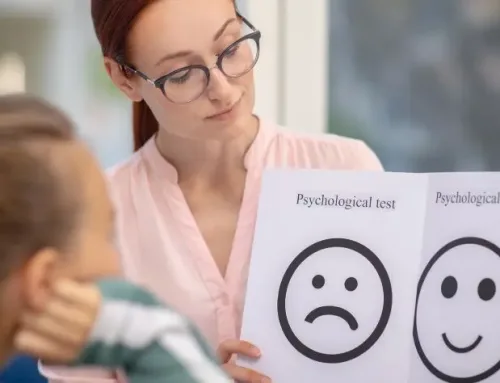PsyD Admission Requirements: Do You Need a Master’s Degree First?

Whether you can get a PsyD without a master’s degree is a common question, especially for students planning their academic path into professional psychology. While many PsyD programs require a master (MA or MS) in psychology or a related field, others offer direct-entry options for applicants with a strong bachelor’s-level background and the right combination of coursework, experience, and academic readiness.
Understanding the different admissions models can help you choose the route that fits your goals, timeline, and current credentials. Requirements can vary widely depending on the program’s structure, focus, and intended student population.
Is a PsyD Program the Right Next Step for Your Career?
The PsyD, the Doctor of Psychology degree, is mostly designed for professionals who want to expand their clinical skills, deepen their therapeutic expertise, or advance in their leadership roles. It’s a practice-focused doctorate, built around applied psychological theory, advanced assessment, and evidence-informed treatment approaches, rather than focused on preparing students for careers in research and academic publishing. Most PsyD programs are structured to help experienced clinicians expand their impact, both in direct care and in systems-level roles.
Unlike the PhD in Psychology that typically emphasizes research design, data analysis, and academic contribution, the PsyD centers on the application of theory in the field. It prepares professionals to lead in healthcare, community mental health, education, and private practice with greater insight and autonomy. If your goal is to become a more effective psychotherapist, clinical supervisor, program director, or community educator the PsyD offers a direct path forward.
For Whom are PsyD Programs Designed?
PsyD programs tend to be a good fit for those who are already working in the mental health field or in closely related professions, including
- Pre-licensed or licensed clinicians with a master’s degree
- Social workers, marriage and family therapists, school counselors, and community mental health providers
- Professionals in career counseling, addiction counseling, or applied behavior analysis
- Clinicians who want to expand their scope of practice and earn a terminal degree
- Those who seek to teach psychology and educate the public about mental health
- Mental health professionals who seek to provide training, clinical supervision, and administer programs
Many PsyD programs are designed for those who enter with previous work experience and deepen clinical thinking, sharpen clinical skills, and prepare students for advanced roles. If you’re looking to grow beyond your current scope, a PsyD may offer the structured, focused development you have been looking for.
Do You Need a Master’s Degree to Get Into a PsyD Program?
For many PsyD programs in the U.S., a master’s degree is a standard requirement for admission. This is particularly true for shorter PsyD programs which offer coursework that builds on previous graduate work and is practice-focused, moving into psychodiagnostics, case conceptualization, treatment planning, and specialized modalities. Without a master’s degree in psychology or a closely related field, it would be difficult to meet the academic and clinical expectations from the start.
Why a Master’s Comes First
A master’s degree prepares you for the rigors of doctoral-level clinical training. Here’s why programs look for it:
- Foundational knowledge in psychological theories and clinical practice
- Readiness for advanced coursework, supervision, and applied casework
- Demonstrated commitment to the mental health profession
- Preparedness through practical experience from previous internships or practicum settings
- familiarity with legal, ethical, and cultural considerations in care
Some universities and schools offer a post baccalaureate or “dual-degree” track that bundles the MA and PsyD into one extended program. These programs tend to be at minimum 5 years, come with higher tuition, and may require additional time commitment for practicum and internship hours.
If you’re already working on your master’s degree or finishing one soon, and recognizing that you have higher aspirations, your next step will be choosing a PsyD program that aligns with your experience, values, and professional goals.
What Types of Master’s Degrees Are Typically Accepted?
Most PsyD programs look for applicants with a background that provides a solid theoretical foundation in psychology (history of psychology, theories of psychology, developmental psychology, psychopathology, Approaches of psychotherapy, Ethics and law in psychology, etc.) The graduate-level work usually must include clinical coursework and hands-on experience.
Commonly Accepted Master’s Degrees
PsyD programs tend to seek applicants with master’s degrees in:
- MA or MS in Psychology
- MA in Counseling or Marriage and Family Therapy (MFT)
- Master of Social Work (MSW)
- MA or MEd in School Psychology or Educational Psychology
- Degrees in clinical mental health counseling or applied behavioral sciences
Each of these degrees typically includes the kind of training that prepares students for doctoral-level clinical study.
What Should Your Master’s Program Include?
Regardless of the degree title, what matters most is the content of your coursework and clinical training. PsyD programs are looking for candidates who already have a solid foundation in mental health theory and practice. This means your master’s program should include key components like counseling or psychological theory, clinical assessment methods, and a strong ethical framework.
Hands-on experience is also essential. Most programs expect to see documentation of supervised practicum or internship hours where you applied what you learned in real-world settings. This shows that you’re not just academically but also clinically prepared and grounded to face the demands of the profession and ready to grow into more advanced roles.
If you’re unsure whether your degree qualifies, do not hesitate to consult admission counselors at schools or universities who offer psychology programs..
How SCUHS Evaluates PsyD Applicants: A Flexible and Holistic Approach
Applying to a doctoral program is a major step—one that deserves real guidance, not just a checklist. At Southern California University of Health Sciences (SCUHS), we take a hands-on, thoughtful approach to admissions for our Doctor of Psychology (PsyD) in Psychodynamic Psychology program. We understand that our students come from diverse academic and professional paths, and we’re here to help you navigate your next move with confidence.
We look beyond transcripts to understand your clinical background, your goals, and your potential. Whether you’re a licensed professional, a mid-career therapist, or transitioning from a related field, we evaluate your entire profile, because we know that growth comes in many forms, and your experience matters.
Personalized Admission Consultation
You don’t have to figure it all out on your own. Our admissions process starts with a one-on-one consultation, where you’ll speak directly with someone who’s here to support you. We’ll help you understand how your previous training fits into our program and what steps to take next.
Support includes:
- Reviewing your academic and clinical experience
- Clarifying whether any prerequisites are needed
- Planning your application timeline
- Mapping how your goals align with our program’s focus
We want your entry into the PsyD program to feel intentional and informed from the start.
What SCUHS Requires
Our admissions criteria reflect the advanced, practice-oriented nature of the program. We’re looking for candidates who demonstrate depth, show curiosity, and express professional purpose.
We require:
- A master’s degree in a mental health or related field
- Professional or volunteer experience in clinical or therapeutic settings
- Commitment to growth, reflection, and leadership in the field
SCUHS offers something different. Our holistic approach means your story, your experience, and your ambition matter. Faculty members, including Dr. Jens Schmidt, our Program Director, will provide you with guidance. Their expertise in psychodynamic theory, trauma-informed care, and culturally responsive clinical practice shape how we educate and prepare future psychologists.
Our curriculum combines online flexibility with immersive, in-person intensives, supporting working professionals who bring diverse experience and training. If you’re unsure whether your degree qualifies, our admissions team can help by reviewing your transcripts and mapping your path forward.
Join a virtual info session or reach out to admissions@scuhs.edu—we’re here to help you take the next step with clarity and purpose.
How to Prepare for PsyD Admissions—Beyond Coursework
Earning a qualifying master’s degree is a foundational step toward applying for a PsyD program, but it’s only part of what admissions committees are reviewing. PsyD programs are designed for professionals who want to grow and seek to have a lasting impact through their service. That means admissions teams are looking for more than just transcripts. They assess whether you’re ready to step up to a higher level of clinical and academic responsibility, and whether your goals align with what the program offers.
Each applicant brings something different to the table, and the strongest candidates are those who demonstrate a combination of preparedness, intent and ambition, and potential. PsyD admissions are academic, but they’re also personal. Committees want to see who you are as a future clinician, leader, and community contributor.
Qualities PsyD Admissions Committees Typically Look For
Beyond the master’s degree, strong PsyD applicants have:
- Clinical or community experience in mental health settings, whether through professional roles, internships, or volunteer work
- Clear motivation for pursuing doctoral-level study and a vision for how they plan to use their degree
- Strong academic and writing skills to handle complex casework, to apply advanced theory, and to demonstrate scholarship
- Defined Interest in leadership, supervision, or teaching within the field of psychology and mental health care
- Good fit with the program’s philosophy, clinical model, or faculty mentorship style
A PsyD program aims at deepening your approach to real world challenges and wants to prepare you to take on advanced roles to respond to the demands of the mental health field and shape its future. That’s why our admission committees look for indicators that you’re prepared to think critically, to reflect deeply about yourself and others, and to apply theory to complex clinical settings as part of your doctoral journey.Shape Your Future in Psychology Today
At SCUHS, we take a holistic, supportive approach to admissions and offer financial aid and scholarships to make your next step more accessible. Join a virtual information session or reach out to admissions@scuhs.edu to get started. We’re here to help you take the next step with focus and confidence.
FAQs
What kind of clinical experience do I need to apply for a PsyD program?
Clinical experience doesn’t have to be extensive, but it should show a meaningful connection to the field. This could include practicums, internships, paid clinical roles, or volunteer work in mental health settings. PsyD programs are looking for applicants who’ve had direct contact with clients or clinical processes and who understand the realities of working in therapeutic environments.
Can volunteer experience count toward PsyD admission requirements?
Absolutely. If your volunteer work involved direct engagement with individuals or communities in a mental health or support role, it can demonstrate your commitment to the field. Programs value hands-on experience—whether paid or unpaid—especially when it reflects your long-term interest in clinical work.
What if I don’t come from a psychology background—can I still apply?
Many PsyD programs accept degrees in related fields like social work, counseling, or behavioral health. If your graduate training included clinical coursework and supervised experience, you’re likely a strong candidate. Some programs even offer guidance on filling in small academic gaps if needed.
How important are writing skills for PsyD admissions?
For any quality graduate program, oral and written communication skills are essential to grasp, discuss, formulate, and apply complex ideas. Verbal skills are particularly relevant in PsyD programs that aim at preparing professionals to effectively communicate and interact with others. Therefore, admissions teams are paying attention to your ability to communicate meaningfully and thoughtfully. Your statement of purpose and any supplemental materials should show you can express complex ideas, reflect on clinical experiences, and engage with theory, all skills you’ll need throughout the program.
Can I talk to someone about whether my degree qualifies for SCUHS’s PsyD?
Yes—you can reach out to our admissions team anytime. We’re happy to review your transcripts, talk through your experience, and help you understand how your background fits with our program’s structure. Just email admissions@scuhs.edu or join a virtual information session to get started.
Related Posts




